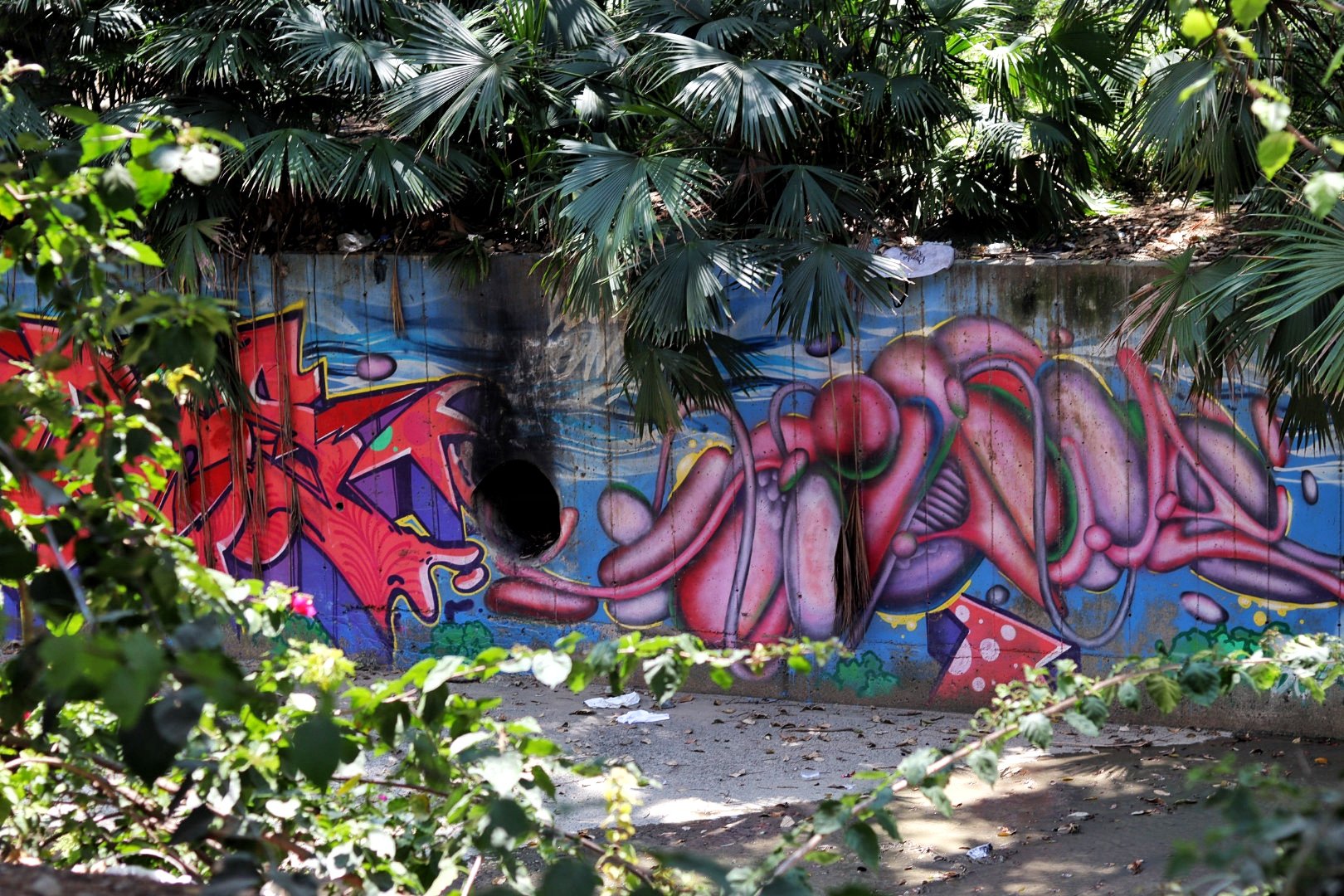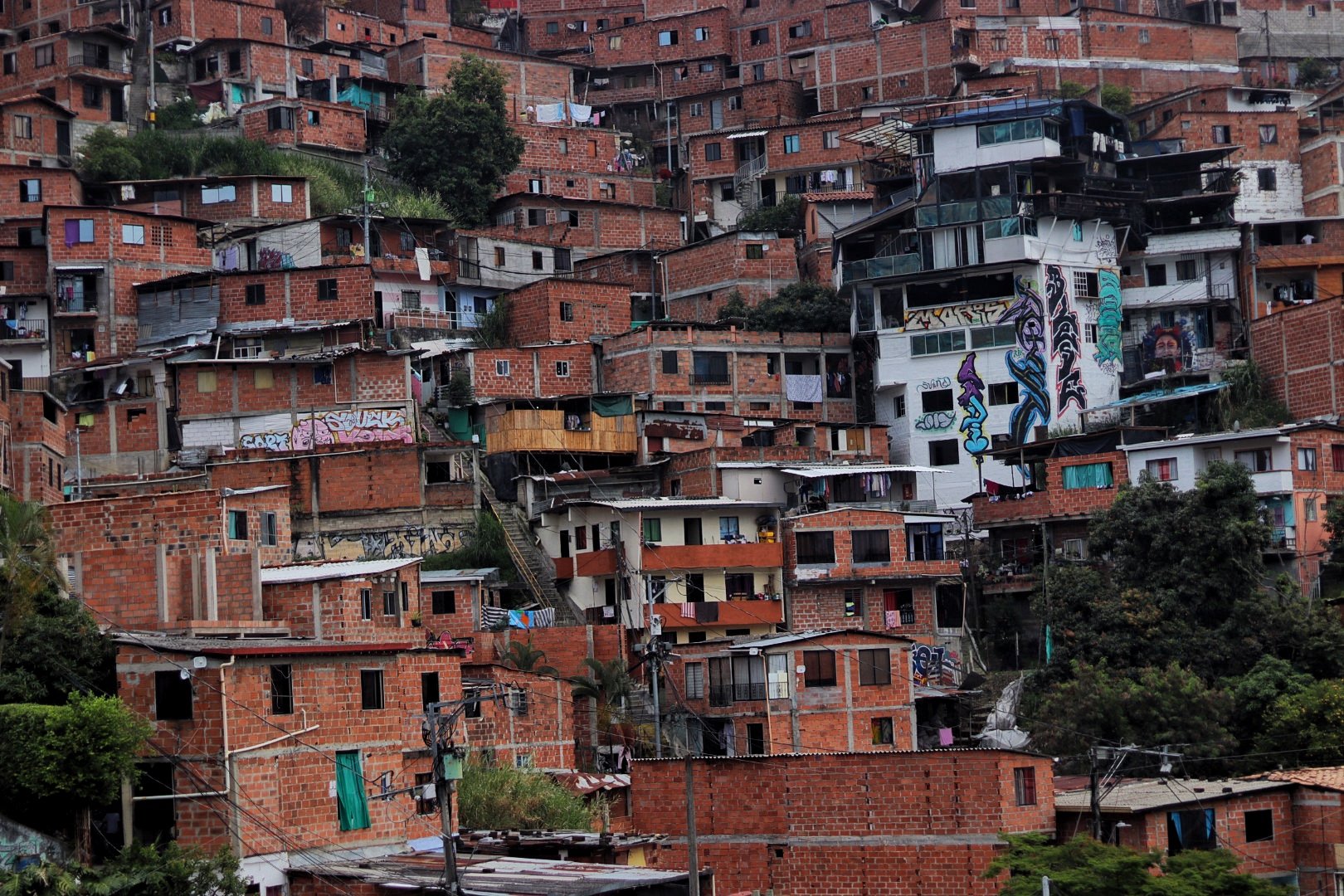Medellín: Welcome to the Jungle
Crap. I just passed the point of no return.
I had no expectations for Medellín. Actually, I knew almost nothing about the place before arriving, sans Entourage and Vincent Chase (IYKYK). I only knew I wanted to spend one week away from my job and see how I felt — plus escape winter in New York.
I was also visiting my friend Sarina. She was a close friend in Brooklyn and moved to Medellín last November — and she was loving it. “I just feel so alive since I’ve moved here,” she told me.
And I get it.
On my first day I went to lunch with her, as well as her roommate Lexi and Lexi’s boyfriend Hernan. They told me that Medellín ranks within the top five cities in the world to find love (it’s where Lexi met Hernan, more on that soon). “It’s so free here,” Hernan said. “There are no rules. You can just be.”
It checks out. Before arriving, everyone said how “beautiful” Medellín is, and “lush.” That was hard for me to fully imagine, so picture this: A city where exotic flowers hang over sidewalks and dot the streets, large leafy plants create walls of greenery, ferns grow off buildings and highway overpasses. It felt like one giant jungle, the White Lotus theme song encapsulated as a city, with many streets shrouded in tree canopies of palms and bamboo. The place is teeming with life, and I felt that applied to its people as well. So when Hernan said this place is free and without rules, its jungle-like feel is both literally and metaphorically apt to that.
Now, there is a shadow, a dark side, which many foreigners are fully or loosely aware of. We’re only thirty-ish years removed from Pablo Escobar — who, oddly enough, is kind of revered in many media depictions outside Colombia (like Entourage). In Medellín, as I learned, many of the people absolutely detest him, to the point where they won’t even mention his name (they call him “The Criminal”); yet a significant faction admire him, and see him as a symbol of rebellion and defiance.
The truth is, Medellín was the single most violent city in the world during his reign. Hernan briefly told me that as a child he saw absolute horrors. There were many places he just couldn’t go. One story stood out from another person: a street bus was boarded and held up by cartel members; when the bus driver refused to give his money (as that was critical for feeding his family), he was shot on the spot, right in his driver’s seat.
That’s why the transformation today feels so remarkable. The fact that people like me can just walk around seems like a miraculous turnaround from not long ago. The city prides itself on its innovation, like the venerated Metro, a collective symbol of hope and ingenuity. Commune 13, once the most dangerous neighborhood in the city, now has an outdoor escalator and is bustling with bars and tourists.
That said, the city still felt kind of sketchy. Before arriving, I was given bulleted lists of things to do or not to do in order to avoid being targeted. While here, I was hyper-vigilant most of the time, wearing my backpack on my front and keeping my hands in my pockets. And I would NOT recommend the city to simply anyone, it still has its rough patches, as the story goes. But if you do come, then you’re in for a treat.
I mentioned I needed a week away from my job (and probably Brooklyn for that matter). I’ve had varying feelings towards both over the last year, ranging from loving it to being on the verge of quitting. So I found meeting Lexi to be somewhat serendipitous.
Lexi’s not far from my age. She left her homeland, Australia, last year on a one-way ticket. “My only goal was to go to a Spanish language school,” she said. She started in Mexico, spent a month there, then made her way to Guatemala for a month before arriving in Colombia. “I was having a great time, but upon getting to Medellín, it just kind of hit me,” she said. “I want a boyfriend. I want stability. I want a relationship.”
The next day, her second in Medellín, she met her now-boyfriend, Hernan.
As he tells it: “We were at a language exchange and we got paired together,” he said. Then he smiled. “I guess you could say we are still partners.”
That happened over six months ago. And she’s been here ever since.
The next night, the four of us went to a soccer game between Medellín’s team, Nacional, and their bitter rival, América di Cali.
“If you want to die today,” Hernan said, “go to Cali wearing a Nacional shirt.”
Now look. I’ve been to college football games. I’ve been to Madison Square Garden. Never have I seen sports passion like this.
Entire city blocks were covered in green, Nacional’s color. Fireworks were exploding everywhere, anthems being chanted, aguardiente (the liquor of choice) being chugged right from the bottle. It was a tailgate on steroids. It’s not just a sport, my other Colombian friend to me, these teams are part of the city.
First, they don’t even allow opposing fans into the stadium, due to potential violence. Hernan warned me I might have my belt taken by security, as it could be used as a weapon or throwing object. I also learned these tickets sell faster than a Beyoncé concert — on Wednesday morning they go on sale, and two hours later they’re completely gone. So to be here was kind of a miracle.
As we walked in the stadium, I was overtaken. The place was rocking. For me, it was looking into the south side of the stadium and seeing the giant team flags being waved, like soldiers preparing for war. It was the pride and passion when the state anthem was played, and every single person sang it at the top of their lungs. And finally, it was Hernan excitedly tapping me on the shoulder, showing me his arm. “My skin! Look!” He said. Piel de gallina, as they say in Spanish, chicken skin. Or as we say in the States: goosebumps.
The game itself was a blast. Not a sip of alcohol taken (also banned in the stadium), and I thoroughly enjoyed every single second. The crowd does not stop singing — and the songs, let me tell you, are bangers. The whole game has a vibe to it, a non-stop rhythm upheld by the fans with the players striking the major notes. It was an experience of everything that makes sport beautiful.
I could never go to a Brooklyn Nets game again.
The following week had a tremendous sense of flow. It was my first time traveling like this — visiting a friend who lived there — and it was the ideal balance. Instead of spending every waking minute together, or being entirely alone and eating weird lonely dinners by myself every night, I had the luxury of having days to myself and someone to be with at night. We also spent Sarina’s off-days together, which included a hike, a lot of putzing, and a walk amongst the Ciclovia (when Medellín closes its most popular street for the day so you can walk, bike, skate, etc down it).
I ate exotic fruits. I did a coffee tasting. I rode the cable cars and met a local friend. I did a walking tour, where I learned about the sacred Metro, one of the most fascinating stories of infrastructure and public transit I’ve ever heard.
But most of all, I just enjoyed myself while I was there.
I mentioned I came to put space between me and my job, and space I gained. Sometimes you miss something, other times you look back neutrally. For me, I was baffled that I even had the job in the first place.
It was my very first morning, sitting in a cafe, being completely surrounded by another language when, for the first time in a long time, I felt 100% at ease. There wasn’t anything else in the world I needed. I had it all right there.
It’s not Medellín itself that had me — although it was gorgeous — it’s the general ease and flow you feel when you get out of a city like New York. I don’t need to go into the downsides of living there. I just know that when I’m away, my whole body relaxes — I can actually feel what’s happening. Things are clear. Part of it is, I’m not obsessed by time and the clock. Another, I’m surrounded by other people who are also at ease, within a culture that better prioritizes lifestyle, family, recreation — other things besides just work. Then I get back into the city, time-obsessed and skin-deep, screaming to be heard in overpriced restaurants where they rush you out, and I say to myself, that’s no way for me to live.
When I got back, I scheduled a call with my friend Robyn. I met her and her partner, Sebastiaan, back in Porto. I was telling her about my trip and my feelings. Robyn could relate, as she experienced something similar.
“When I wanted to quit my job and move, I had to start talking about it,” she said. “So I set a date. I told people I’d be leaving by this time, even before I was actually ready to do it. But by talking about it, I made myself accountable to it. Otherwise, I probably would have stayed much, much longer than I wanted.”
After this trip though, as the rush and noise of New York gradually overtook me again, I was not as sour and dismal as I was when I returned from Portugal. Instead, I was at ease. I walked the streets and felt gratitude — it gave me exactly what I asked for and exactly what I needed. And yet I also felt a sense of detachment, like it wasn’t mine anymore — like a soon-graduating senior strolling the halls and seeing excited underclassmen do their thing. How fun, how awesome, how exciting of a place this is — but it’s simply not for me.









